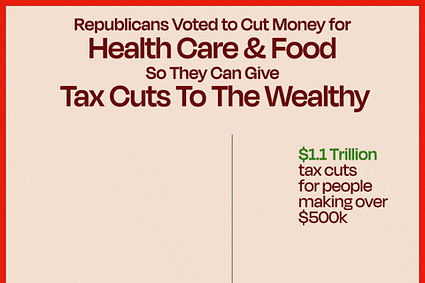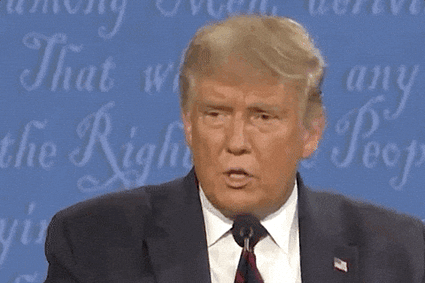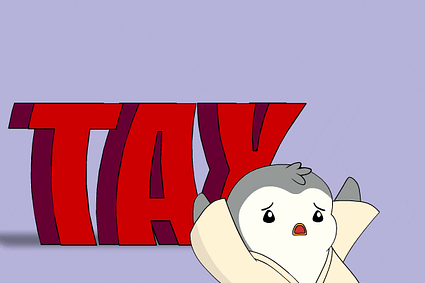
Government budgets are not like household budgets. They do not work in the same way. Nations like Australia with a sovereign currency, like the Australian dollar, cannot run out of money. Therefore, all this tut tutting about government deficits and spending is misdirection. If you print your own currency you can always print more. Yes, there are other economic constraints like inflation, but worrying about going bankrupt is not one of them. Governments are better off running deficits than being in surplus. In a national economy the role of government is to spend to further the wealth and wellbeing of its citizenry when required. Understanding money is not the same for the state and its citizens.

Governments & Understanding Money
Governments should be doing everything in their powers to foster full employment for the people. The population should not be struggling economically because a government is hell bent on running a surplus, that is just stupid. In fact, governments running current account surpluses, often, presage economic depressions and recessions, if you take a look back at the records.
In America, the half a dozen times in history the federal government has been in surplus was directly followed by the worst economic crises in that nation’s experience – including the Great Depression and the Global Financial Crisis of 2007-8.

Money Is An IOU From The State
Politicians bang on about government economic mismanagement for political reasons and not out of any actual valid reasons. Comparing national economies to household’s is irresponsible and without merit. Economies of countries containing millions of people are complex things and not in any way like individuals. People need to smarten up and stop falling for the negative messaging designed to ferment fear and insecurity. We all need to learn how big national economies actually function. Money is an IOU from the state to its individual citizenry.
Money was created by the state for the purpose of paying taxes, fines, and fees. Money is debt, state debt credit.
“The instruments of trade and finance are inventions, in the same way that creations of art and discoveries of science are inventions—products of the human imagination. Paper money, backed by the authority of the state, was an astonishing innovation, one that reshaped the world. That’s hard to remember: we grow used to the ways we pay our bills and are paid for our work, to the dance of numbers in our bank balances and credit-card statements. It’s only at moments when the system buckles that we start to wonder why these things are worth what they seem to be worth. The credit crunch in 2008 triggered a panic when people throughout the financial system wondered whether the numbers on balance sheets meant what they were supposed to mean.”

How Our Financial System Works
People need to refine their understanding about money and how our financial systems work. When you borrow from a bank, that bank credits your account by pressing buttons, they don’t physically create any actual new money. The central reserve bank credits the accounts of those banks by pressing buttons. When loans are paid off that money just disappears from the system and only the interest charged stays on the bank’s books. This is how our financial system works. Liquidity is created temporarily via debt for the life of the loans. Lots of debt and credit means lots of money in the economy. Modern economies are bloated with credit and debt. This pushes up the value of property in the case of places like Australia, where lots of money is chasing too little supply of property for housing in the major cities. This over supply of money is created by the banks and financial institutions under the auspices of the Reserve Bank and the government. Imagine if this money supply was turned off, it follows that the value of houses would fall as demand would dry up. This would upset those investors already in the market but lower the entry level for those trying to enter the market.
The housing boom in Australia has been in overdrive since John Howard’s time in the late 1990s. Australia is heavily dependent upon the domestic property market and so I do not see anything changing on this score economically any time soon. That boat has already departed.

Inflation & Our Economy
The inflation gripping the world right now is in response to the liquidity pumped into private hands by governments during the pandemic to offset a potential economic catastrophe. In the end it quickly produced too much money supply for many things and businesses raised their prices to profit from the booming demand and supply of funds. Companies have declared record profits in various sectors right around the globe. Once prices start going up it creates a spiral with businesses chasing each other’s tails. Plus the war in Ukraine after Russia’s invasion spurred an energy crisis and spiking oil and gas prices.
We now have sticky inflation with it lodging in the service sector after stabilising, peaking, and coming down in goods like food. Energy prices are still high and rents in Australia are sky high because of the shortage of stocks.

Governments & Combatting Inflation
What can governments do about inflation? To lower inflation governments can raise taxes and reduce spending. These fiscal policies remove government stimulus from the economy and means it is not competing with the private sector. The RBA has raised interest rates steeply for a year in a bid to dampen demand within the economy. However, house prices in Australia are starting to go up again and retail spending still persists at a higher level than pre-pandemic. Obviously, the Stage 3 tax cuts are a really bad idea right now and must be postponed and/or amended to lessen their inflationary impact on the economy. The government is bringing in record numbers of new migrants into the country at a rate of a thousand per day. These cashed up new arrivals are spending as all new immigrants have to do. It is a crazy time to be doing this, with a housing and rental crisis in full mode. Seems like a case of the government having its cake and eating it too. Political considerations often prevent democratically elected governments from doing the economically necessary. Raising taxes is never popular with everybody, especially those with loud voices in the firing line. The wealthy and powerful manage to make themselves heard to the detriment of the poor and powerless. Robodebt is a good example of this, with the Coalition/ LNP saddling half a million Australians with debts to the government they didn’t legally owe. Eventually, this cost tax payers $1.8 billion and counting in a settled class action. Normally, putting the boot into the vulnerable and dispossessed goes unnoticed in Australia. Scott Morrison got the boot electorally, as did Tony Abbott, the other’s responsible, Alan Tudge, Stuart Robert, and Marise Payne slunk off into the night recently.
Understanding money and how it functions in modern economies will help deter morally repugnant people like Abbott and co. These prophets of doom and manipulators of the truth are out there awaiting their next opportunity. It pays to be informed and prepared, economically speaking.
Robert Sudha Hamilton is the author of Money Matters: Navigating Credit, Debt, and Financial Freedom.
©WordsForWeb



























